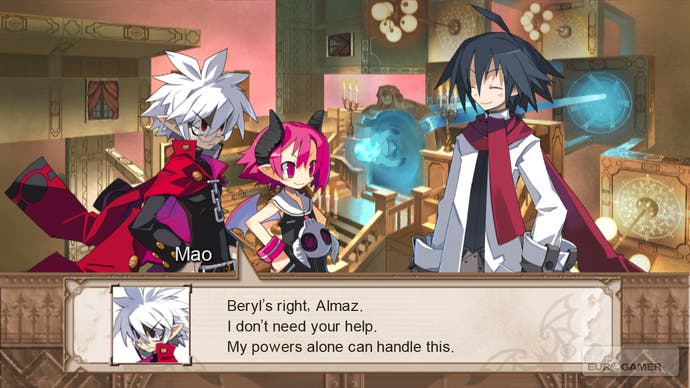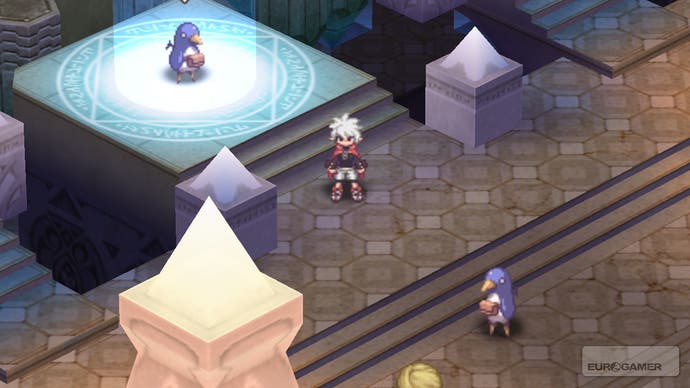Disgaea 3: Absence of Justice
And Justice For None.
The sense that Nippon Ichi is sticking close to the original game's successful template carries over into the game mechanics. These take the best improvements of the second game and crowbar them back into the more robust framework of the first. That's not to say there aren't innovations. Disgaea 3's changes are, on paper, significant, and they do smooth over some of the series' quirks, but they have mixed results.
The most obvious change is in the introduction of Evilties, special augmentation abilities that improve a character's performance in battle. These must be purchased with Mana points (a kind of experience currency earned by defeating enemies). Each character has two Evilties, one which is auto-assigned based on their job class, and one which can be customised. Additionally, you can now use Mana points to purchase and upgrade new battle skills sooner than if you simply leveled your character and let them grow naturally.
This new layer of economy certainly increases the fussiness of maintaining your team but it also grants a pleasing amount of freedom - allowing you to focus all of a character's Mana in a chosen area (e.g. a White Mage's heal ability) right from the off.

The mechanical interrelationships between team members are also now much more complex than before. The likelihood that two characters will join up for a team attack is no longer random but manually set in the classroom area of the hub. The introduction of 'After Schools Clubs' bestows further benefits to those members you assign to a club's limited places (e.g. members of the 'God of Cookery' club will see the effectiveness of items they use doubled).
Monsters, previously a little redundant as team members, are now more effective due to the 'Magi change' command. This allows the monster to turn into a special weapon that can be used by a humanoid character if they're both members of the same club. Technically you lose a character by transforming one of your monsters into an inanimate object, but this loss is offset by the power of the new weapon's attacks.
Finally, the Geo Block system has undergone a massive overhaul. No longer just status-effecting panels on the play grid, the idea has been translated into 3D, with blocks stacking to form temporary towers and blockades which must be toppled and turned against enemies using planning and ingenuity. The complexity this adds to what is already a multi-layered system is, to begin with, dizzying - even for those familiar with the Geo Panels of the previous games.

These additions and evolutions will challenge series veterans but for newcomers Disgaea 3 presents an almost insurmountable learning curve; the game's rewards may seem too far off and hard won to warrant the effort. However, get to grips with the intricacies and, once again, Nippon Ichi has created a delicious statistical sandbox to play in.
There are those who will want simply to follow the story and uncover one of the game's eight endings, without diverting into the extra-curricular depths. For these players the game is well worth the effort.
But for series veterans who want to drill down to the bottom, upgrading weapons by slogging through 100-level grinds in the item world, balancing Evilties, managing clubs and alliances to create a squadron that is literally the gigantic sum of its creator's decisions, a blanket recommendation is harder to make. For these players Disgaea 3 is in many ways more of the same - a sequel that makes some interesting changes to the way the journey plays out, but too few to the ultimate destination.








